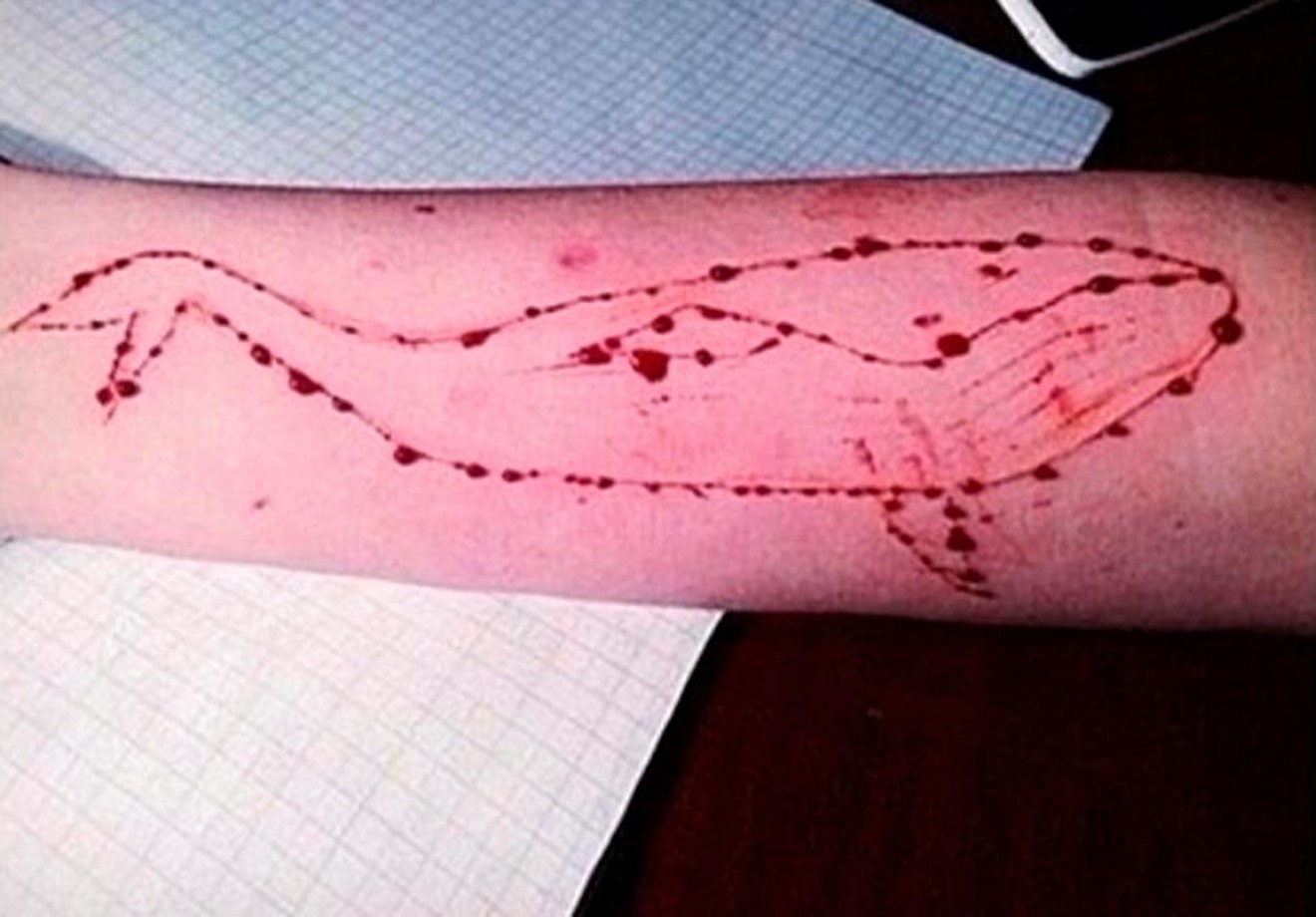Yet there's no evidence that suicides in the United States have been linked to the game, and reports from Russia about a widespread problem have been largely debunked.
"This can have really tragic consequences," Montgomery said at his weekly news conference on Wednesday, urging parents to talk to their kids about it.
True, the elected politician is not the only American talking about the game: School officials and law-enforcement officials in other states have expressed concern about it, too. And alarms are going off about the game around the world, with authorities broadcasting various warnings and alleged anecdotes linked to the game.
Montgomery said the game began in Eastern Europe and described one case in which a young girl was "coaxed" into committing 50 tasks "culminating with her suicide."
Teens are tasked with carving or tattooing a picture of a blue whale on their arms, which can be a telltale sign for parents of participation in the game, he said.
The "whale" motif apparently refers to the idea that whales sometimes commit suicide by beaching themselves.
Montgomery acknowledged that he hadn't heard of any cases in Maricopa County.
In fact, there are no reported suicides linked to the game in this country. And the links to the game in Russia were popularized last year by a Novaya Gazeta newspaper article that has been roundly criticized as exaggerated, at best.
The Russian newspaper article claimed that 130 cases of suicide may be linked to the game, and that 80 or more of those were linked to Blue Whale.
However, a May 10 article by Radio Free Europe states that "not a single death in Russia or Central Asia has been definitively tied to Blue Whale."
Snopes.com, the website many rely upon to investigate questionable Internet news, gives the Blue Whale story an "unproven" designation.

Mississippi mom Melissa Patton claims her 12-year-old daughter wrote "F57" into her arm as part of the "Blue Whale Challenge."
"This is real people !! My 12 year old was a victim of this sick game," Patton tweeted last week.
Sameer Hinduja, a cyberbullying expert and criminology professor at Florida Atlantic University, told the Irish Times in a May 16 article that the university's Cyberbullying Research Center has been checking out the claims.
"Across the entire planet, we haven’t seen anything specifically investigated and proven to be related to it,” Hinduja told the news site. "Maybe, just maybe somebody decided to go ahead and take their life because of it. ... My point is we’ve made something real from something that wasn’t real, simply by the way that we reacted to it.”
Hinduja told the Phoenix New Times he stands by the quotes and referred to a recent article by one his research colleagues, Justin Patchin, that describes how Blue Whale could endanger teens even if it's a hoax.
"My concern about the sudden captivation in the Blue Whale centers on hackers who will capitalize on interest in the activity to lure curious clickers into compromising their computers and networks," Patchin wrote. "And even though there has yet to be any confirmed suicide directly connected to the game, it could lead to trouble for vulnerable youth looking for attention.
"A suicide contagion has been well-documented in research and so even just increased discussion of suicide in relation to this game is potentially problematic," he added.
Photos on Instagram on elsewhere depict bloody blue whales cut into skin — or maybe they're just faked shots. It's unclear whether any app or dedicated website exists where kids could play the game, although in some news reports, some teens claim they downloaded such a game.
A popular Twitter hashtag for the purported game, #i_am_whale, brings up dozens of posts in which some people are urging others not to play, while others claim to be searching for a Blue Whale game "curator" to guide them through the 50 tasks.
Like many rumors, the Blue Whale tale may contain some grains of truth.
Russian police arrested a man last year who allegedly helped create the game. Philipp Budiekin, 21, reportedly admitted to targeting teen girls on social media since 2013, successfully pushing 16 of them to commit suicide.
Budeikin had been held in prison for about a year before pleading guilty this week in Russian court, according to BBC News.
The fact that the Budiekin story depends on the credibility of Russian law enforcement officials, a corrupt group feared by most Russian citizens, probably should give readers pause.
Nevertheless, online sources claim that Budiekin — an expelled university psychology student — created the game in 2013, resulting in the first Russian suicide in 2015.
Budiekin reportedly gave statements to the press last year that he was "cleaning our society" of "biological rubbish."
Montgomery mentioned Blue Whale as part of other comments about teen suicide. He said parents should also be aware of shows like 13 Reasons Why, in which teen suicide is featured prominently.
All this being said, teen suicide — or the threat of it — is a terrible and ever-present trend in societies in the United States and across the world. If you or someone you know is contemplating suicide, please get help: Contact the Arizona Suicide Prevention Coalition, or call the teen hotline numbers, 602-248-TEEN (8336) or 1-800-248-TEEN.














